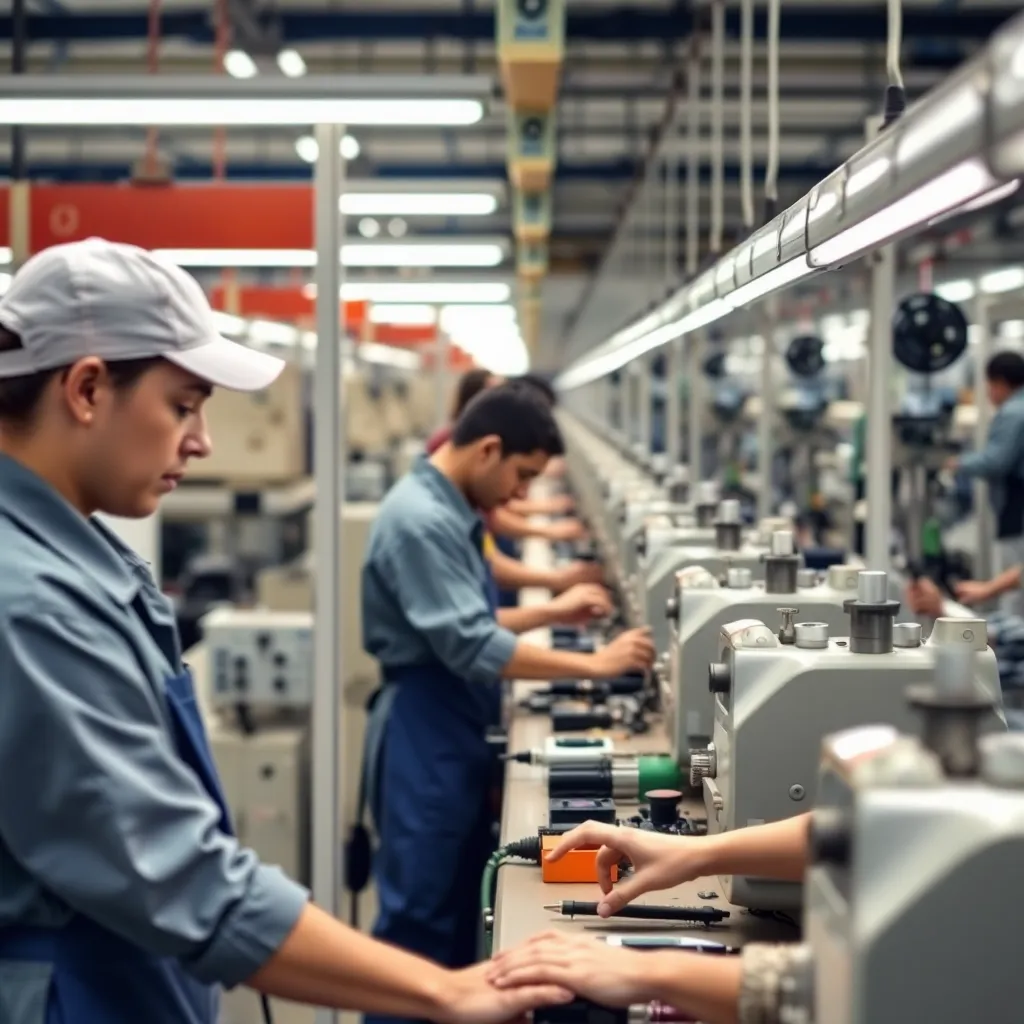

Ford Announces Workforce Realignment Amid Sales Challenges in Michigan and Europe
Want to target the right audience? Sponsor our site and choose your specific industry to connect with a relevant audience.
Prominent brand mentions across targeted, industry-focused articles
High-visibility placements that speak directly to an engaged local audience
Guaranteed coverage that maximizes exposure and reinforces your brand presence
Interested in seeing what sponsored content looks like on our platform?
May’s Roofing & Contracting
Forwal Construction
NSC Clips
Real Internet Sales
Suited
Florida4Golf
Click the button below to sponsor our articles:
Sponsor Our ArticlesIn a significant shift for the automotive giant, Ford Motor Co. is realigning its workforce in response to changing market conditions. The company announced this past Wednesday that approximately 400 workers from its Bronco plant in Wayne, Michigan, will be reassigned to other plants in southeast Michigan due to reduced production at the facility. Additionally, Ford plans to reduce its workforce by 4,000 employees in Europe by the end of 2027.
Now, you might be wondering—why the change? Well, even though sales for the popular Bronco SUV have seen a remarkable increase of 105% year-over-year in October, overall deliveries have actually dipped by 10% across 2024. Lars Weborg, a spokesperson for Ford, explained that the transfers will occur over the first quarter of 2025 and will depend on seniority. Workers will have the chance to move to the Dearborn Engine Plant, Monroe Parts Depot, and other locations, creating a bit of flexibility for those employed at the Michigan Assembly Plant in Wayne, which currently employs nearly 6,000 people.
As the company gears up for future production, the Michigan Assembly will be down for the first two weeks of January to prep for the model-year changeover. Despite the workforce adjustments, Ford will keep the additional crew it added earlier this year when it switched the Dearborn Electric Vehicle Center to a single shift.
The layoffs in Europe stem from several factors, primarily the economy’s pressures, increased competition, and disappointingly weak sales in electric vehicles (EVs). Ford is grappling with intensified competition from Chinese rivals who are flooding the market, making it harder for the established players to maintain their footing.
Ford is laser-focused on cutting costs, aiming for a $2 billion annual reduction across materials, manufacturing, freight, and labor. But even those hefty cuts haven’t been enough to counterbalance product updates, inflation issues from their joint venture in Turkey, and warranty costs that all contributed to a staggering 25% drop in net income in the last quarter, not to mention a costly decision to cancel an electric three-row SUV program.
Chief Financial Officer John Lawler emphasized Ford’s need to restructure aggressively in areas that require immediate attention. “We’re going to be aggressive in restructuring where we see the need to do so,” he stated, as the company looks into shedding jobs primarily in Germany and the United Kingdom. Talks with employee representatives are in the pipeline, aiming for as smooth a transition as possible.
With the looming concern over a new lower limit for carbon dioxide emissions in Europe set for 2025, Ford and other automakers are facing headwinds like inflation and the removal of consumer subsidies for EVs in Germany. The result? A shrinking demand for electric vehicles and growing fears of job reductions across various companies in the industry.
Ford is not alone in these struggles. Other big players like General Motors and Stellantis have also announced significant job cuts in recent months. Amidst this challenging landscape, many analysts are urging Ford to make “proactive cuts” to weather the storm over the next six to twelve months as conditions in Europe tighten further.
Despite the current struggles, Ford remains optimistic about future earnings, projecting its annual adjusted operating earnings to reach around $10 billion for 2024. However, the road ahead seems filled with bumps, and it’s apparent that decisive action is crucial to Ford’s ability to compete moving forward.
As we watch these changes unfold, one thing is clear: the auto industry is in a state of transition, and only time will tell how effectively companies like Ford adapt to the new landscape.
News Summary Charles 'Chuck' Edward Savatsky, a cherished figure in Dexter, Michigan, and a pioneering…
News Summary The 2025 Michigan high school girls tennis season culminated at the Byron Center…
News Summary Freudenberg Performance Materials will debut its advanced foam replacements at the FOAM Expo…
News Summary In light of increased tensions following U.S. military strikes on Iran, the Michigan…
News Summary Governor Gretchen Whitmer of Michigan is closely monitoring the military situation in Iran…
News Summary President Trump announced U.S. airstrikes on three Iranian nuclear sites, causing a split…